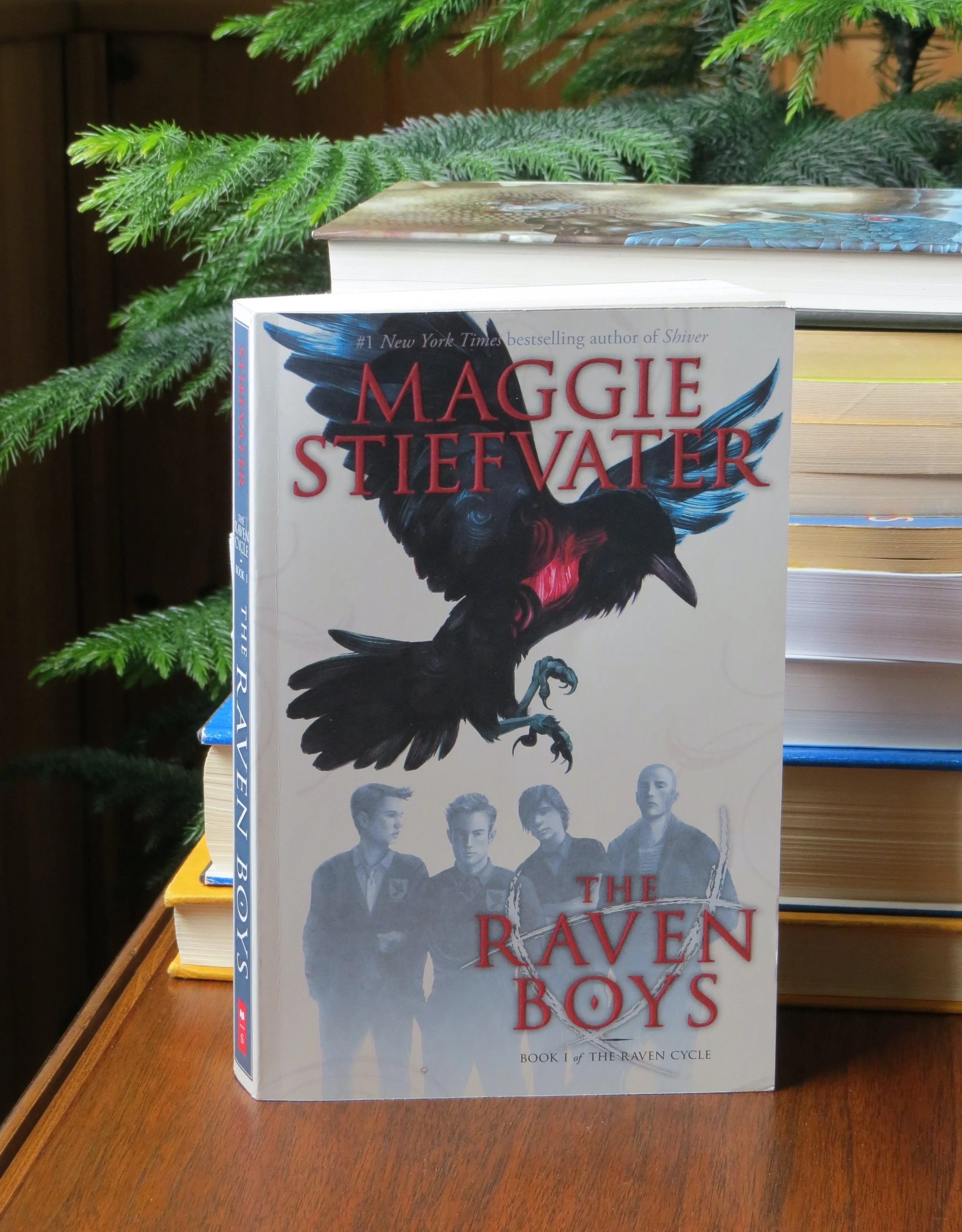The Raven Boys
This is my book review of The Raven Boys (Book 1 of The Raven Cycle series) © 2012 by Maggie Stiefvater. I read all genres, but I would say that a third of my reading library is populated by young adult novels. The Raven Boys is a young adult novel. And, despite some “PG content” (violence, profanity, the occult), this is a story about teenagers and is generally recommended for ages 14 and up. I would be on the “up” side of that range, but I don’t think the label of young adult (or junior fiction, for that matter) should stop me or older readers from enjoying superb writing. Some of the finest writing I’ve encountered has been within the pages of young adult novels.
The story begins with a teenage girl named Blue living in the small, near present-day town of Henrietta, Virginia (USA). Blue is the only non-clairvoyant in a household of fortune tellers — and the only one hounded by a tragic prophecy: if she kisses her true love, he will die. In light of this beginning, I anticipated a plot line that would centre around Blue, her mother, and the other members of her all psychic, all female household. What my teenage sons would call “a girl book.” However, while there are some strong, wonderfully written female characters within this novel, true to its title, this story is about the Raven Boys. More precisely, it’s about four private school boys — their quest for a medieval treasure, their complex friendships, and their adoption of Blue as a member of their group.
The character development in this book is careful and rich. The author is adept at creating a variety of characters, each distinct from the others and each interesting for his or her own reasons. Although the novel begins with Blue’s story, we (the readers) are soon equally invested in the stories of Gansey, Ronan, Adam, Noah, and Blue. With varying skills and very different backgrounds, the five are connected by their unusual treasure hunt, their improbable friendships, and their individual struggles to fight or embrace a future seemingly predestined for each of them.
Even though it easily could have been Blue telling this story, the narration isn’t first person, and I love how this gives us more insight into the personalities of the other characters and their perceptions of the world. If you’re a writer, you’ll know that deciding what type of narration to use can be difficult. Whether or not you’ll allow the reader inside the head of more than one character is something to consider carefully. Also, the language used by a third-person narrator is more flexible and can shift to fit the character it’s accompanying.
A classic treasure hunt in many ways, this story has mystery, suspense, and surprising twists. The plot is unpredictable (a must for me) and exciting. Most importantly, I didn’t guess the ending. (For me, being able to guess the ending is always a deal-breaker.) When I finished reading, I thought, this is what an adventure story should be. Also, I must admit, I’m a sucker for great last lines. The last line of this book is amazing!
Lastly, I love that I was content with this book as a standalone. Although the ending readily leads into a sequel, the novel reads like a complete story with a beginning, a middle, and a satisfying ending. This, I think is essential. I don’t mind sequels at all, but I believe each installation needs to be sufficient unto itself.
I give this book 5/5 stars. The story was well written and well told. I even bought a copy for my son. “Relax,” I told him. “It’s not a girl book.”
___________________________
Full Disclosure: While I do own a paperback copy of The Raven Boys, I listened to an audio version read by Will Patton. Fantastic! The whole book was enriched by his narration.
This book review of The Raven Boys by Maggie Stiefvater is based on the August 2013 paperback edition (© 2012 Maggie Stiefvater) published by Scholastic Inc. (New York, NY, U.S.A.) and on the September 2012 unabridged audiobook edition (© 2012 Maggie Stiefvater; ℗ 2012 Scholastic Audio) published by Scholastic Audio and narrated by Will Patton.
